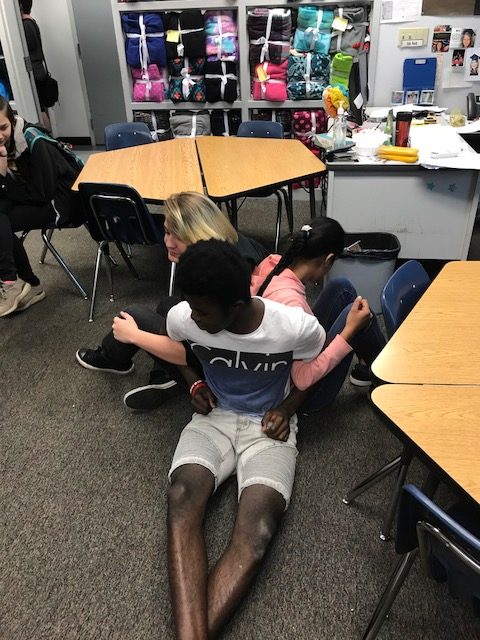Our Mission
The Shasta County Chemical People, Inc. is a non-profit community-based group which promotes and supports the development of a safe, strong community free from racism, violence, alcohol, tobacco and other drug abuse.
Our History
Founded by a group of concerned parents in 1983 out of the Just Say No parent movement. The founding members soon found their passion in focusing on youth and mobilizing the power of the community to combat racism, violence, alcohol, tobacco and other drugs in Shasta County. That passion soon birthed the Shasta County Chemical People; a non-profit, youth and adult led organization, which promotes and supports the development of a safe, strong community for youth and families free from racism, violence, alcohol, tobacco and other drug abuse.
In 1989 the organization received its 501 (c) 3 status and has since been governed by a dedicated board or directors. All of our programs are funded through local, state, and federal grants, foundations, businesses, and private citizens. Starting out as an all-volunteer agency the organization has expanded over the years to employ up to twelve staff. Our staff and volunteers are crucial to carrying out our mission and program implementation, which consist of:
A Sobering Choice- A community-based youth and adult led coalition dedicated to reducing the incidents of driving under the influence of alcohol and other related drugs among the youth and adults of Shasta County.
Friday Night Live (Statewide)- Seeks to build partnerships for positive and healthy youth development which engage youth as active leaders and resources in their communities.
Shasta Peer Mentoring- Exists to provide opportunities for young people to be in on-going, mutually beneficial, caring relationships which strengthen their resiliency to the challenges they face in life. This is attained by matching high school students with middle school students.
Sober Grad- Co-sponsored with the California Highway Patrol, Sober Grad consists of ten public and private high schools who band together to ensure that each graduating senior has the opportunity to attend their high school safe and sober event. This event helps our graduates make it to their future.
SCCP Sponsors multiple other community-based programs including: Real DUI Courts in Schools, Drug Store Events, Red Ribbon Week, Every 15 Minute Programs, Marijuana Task Force, Meth Task Force, Opioid Coalition, and youth-led Town Hall Meetings, Social Host policy, and conferences and seminars.


WHAT PROTEGES SAY ABOUT MENTORING:
The best part of mentoring is: “Being able to talk about how you feel to someone trustworthy and you get to have fun.”
“I would recommend this to a friend because it brings everyone together.”
“Without FNL, I would never have met the friends I have now.”
“Being able to speak up and talk.”
Without mentoring: “I wouldn’t have had a mentor and gotten to know more about high school.”
“Mentoring was amazing.”
WHAT MENTORS SAY ABOUT MENTORING:
“The best part is being able to see the difference you are making in the community.”
“The best part is getting to connect with somebody you normally wouldn’t and try to become part of their life and somebody they can trust. It was also great to be able to talk about things in a group that you know you can trust.”
“The best part is making friends with the other mentors from your school and getting to know the proteges and knowing that you made a difference.”
“Mentoring allows us to meet new people and at the same time learn more about leadership and different problems in our community.”
“I have been able to experience kids breaking out of their shells and becoming more comfortable with others.”
WHAT CLUB MEMBERS SAY ABOUT FNL:
“I get to take action in my community and change it for the better.”
“It develops friendships and bring people together. There are many lessons and I have a lot of fun.”
“It has helped me develop new skills which have helped me during interviews and speaking about our activities in the community.”
“FNL has taught me to lead discussions and to speak in public.”
“FNL is important to me because, it is one of the few (possible only) programs in my community that helps to prevent the use of drugs and alcohol in students.”
“As a kid, my family had a lot of troubles. Sometimes I was left alone. I always counted on programs like this to help me find my way through it all. I want to keep these programs alive for kids like me.”
“It gives students like me a place to belong.”
